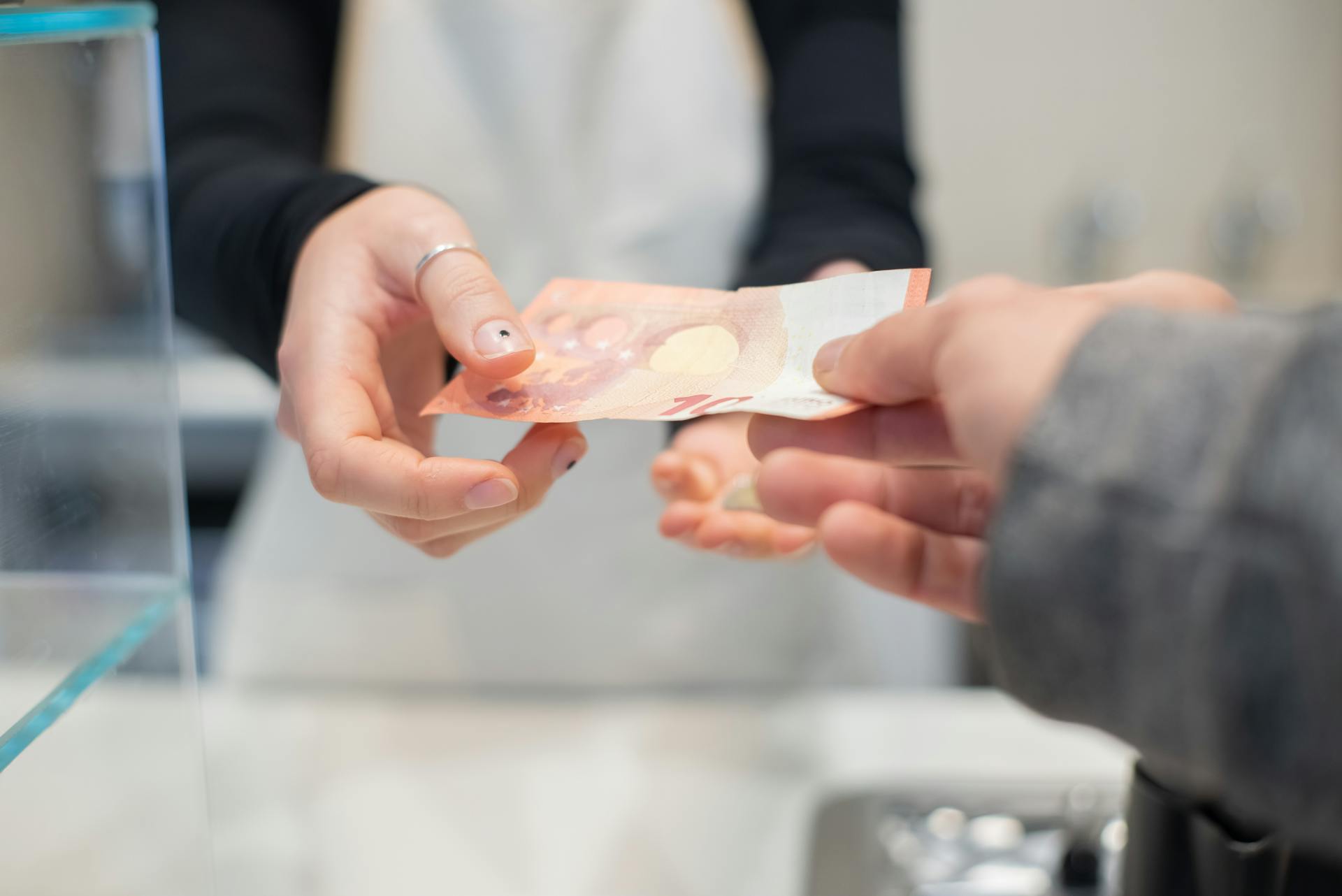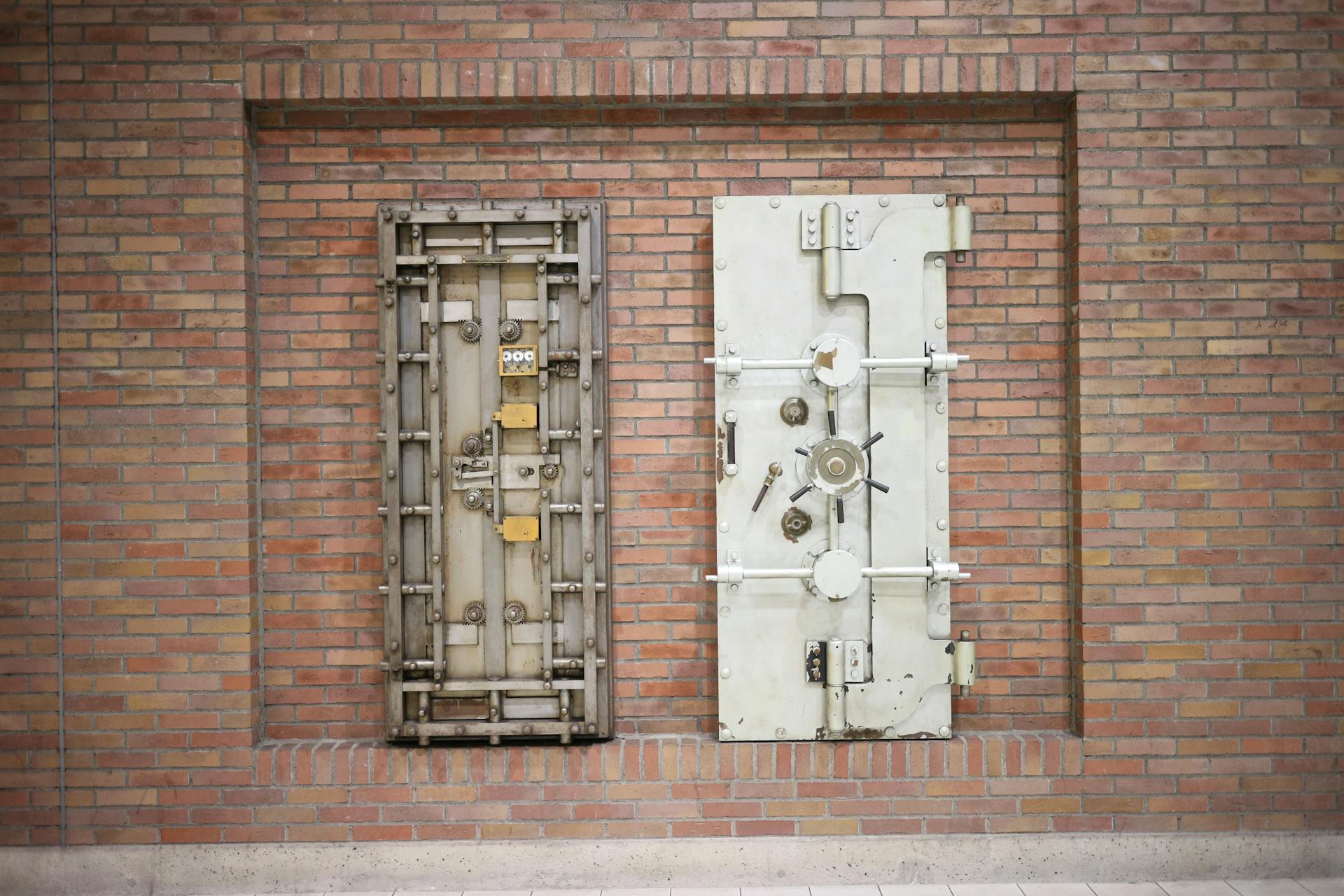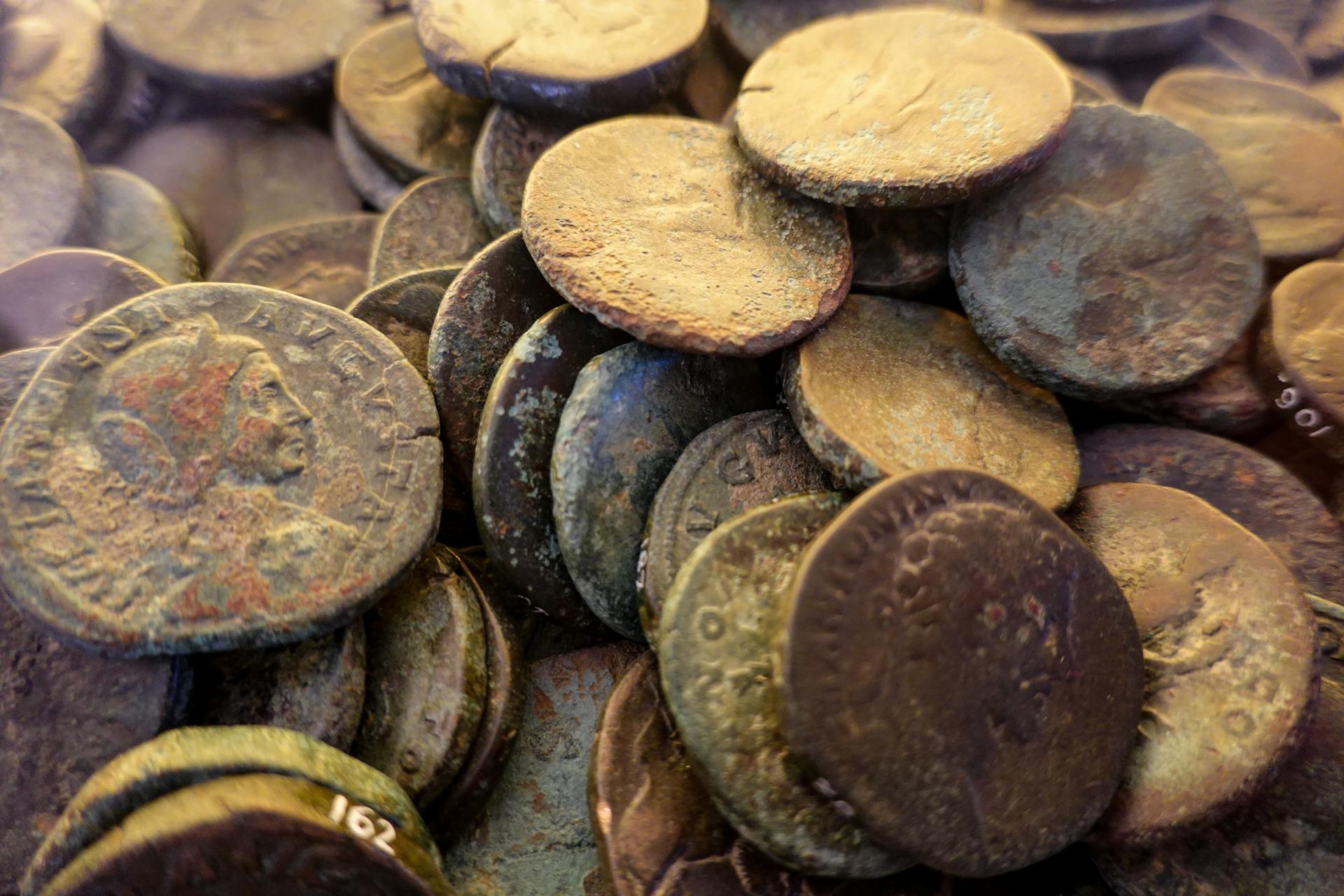
A banker's draft is a type of guaranteed payment that is widely accepted for making payments in the UK and other countries.
It's essentially a cheque drawn on a bank's account, but with a guarantee that the funds will be available. This makes it a more secure option for making payments.
One of the key benefits of a banker's draft is that it's a guaranteed payment, which means the recipient is assured of receiving the funds. This is especially useful for large or international transactions.
A banker's draft can be used for various purposes, including paying bills, making deposits, and even purchasing property.
You might like: E S a Payments
What is a Banker's Draft?
A Banker's Draft is a document that allows the transfer of funds from one person to another.
It's essentially a written order for a bank to pay a certain amount of money to someone.
To get a Banker's Draft, you need to submit a request to your financial institution, which will then review your account to make sure you have enough funds.
Discover more: Banker's Right to Combine Accounts

The bank will approve the request, withdraw the funds from your account, and issue the Banker's Draft.
There's usually a small fee associated with Banker's Drafts, but many banking accounts offer a certain number of free ones per year.
The Banker's Draft is issued in the name of the person who will be depositing it and receiving the money.
Once the payee presents the Banker's Draft for payment, their identity is verified with the name on the document.
Benefits and Advantages
Bank drafts offer several benefits and advantages that make them a convenient and efficient way to transfer money.
One of the main advantages of bank drafts is that they are a much easier and more convenient method for transferring a large sum of money than withdrawing a large sum of cash.
Unlike e-transfers, bank drafts do not have a maximum amount limit, making them ideal for large purchases such as buying a house or car.
Bank drafts also provide a quicker alternative to wire transfers, which can take days to process.
This speed and efficiency make bank drafts a popular choice for making large transactions.
Security and Limitations

Bank drafts offer a level of security, especially since they're pre-funded, making them less likely to bounce compared to regular checks, which is particularly beneficial for large transactions.
This security comes at a cost, however, as bank drafts are subject to fraud, just like any other financial instrument.
If a bank draft is lost, stolen, or altered with, and the funds are cashed out by the wrong person, the bank is not responsible for replacing the lost money, leaving the buyer vulnerable to financial loss.
You might like: President's Choice Financial
Cost and Availability
A bank draft is a safer way to pay, but it comes with some costs. Obtaining a bank draft usually comes with fees, which might make them less appealing for smaller transactions.
These fees can vary by financial institution, with some charging a flat fee and others charging a percentage of the check amount. For example, TD Bank charges a flat fee of $9.95 for a bank draft.
If you're considering using a bank draft, it's essential to know that the costs might outweigh the benefits for small transactions.
Take a look at this: Bank over Draft Fees
Costs

Obtaining a bank draft usually comes with fees, which might make them less appealing for smaller transactions.
The cost of a bank draft can vary significantly depending on the financial institution. For example, TD Bank charges a flat fee of $9.95 for a bank draft.
Some banks may charge a percentage of the check amount, which can add up quickly for larger transactions. This can make bank drafts less appealing for sending large sums of money.
It's worth noting that bank drafts often have higher fees compared to other payment methods. This is something to consider when deciding whether to use a bank draft for a transaction.
Here's a breakdown of the costs you might incur when using a bank draft:
Keep in mind that these costs can change over time, so it's always a good idea to check with the financial institution before using a bank draft.
Availability of Funds
Bank drafts offer a higher level of security compared to personal checks, which can bounce if there are insufficient funds in the payer's account.

Unlike personal checks, bank drafts are guaranteed by the bank, ensuring the payee has access to the available funds. This guarantee is a significant advantage for the payee.
A bank draft is essentially a promise of payment that the bank stands behind, making it a more reliable option for transactions. This reliability can give the payee peace of mind, knowing they can count on the funds being available.
Return
You can cancel a bank draft, but it's not always easy. Some banks may not put stop payments on drafts once they're issued because the transaction has already taken place, according to their records.
If you want to reverse the transaction, the bank usually requires that you redeem the draft for the full amount. In some cases, it is possible to cancel or replace a lost, stolen, or destroyed draft as long as you have the required documentation.
If the bank draft gets destroyed or stolen before being delivered to the payee, the buyer can go to their bank to get a new draft and cancel the existing one. Similarly, if the transaction gets canceled for any reason, the buyer can request the bank to cancel the draft unless it has already been cashed out by the payee.

A bank draft is difficult to cancel since the funds have already been withdrawn from the buyer’s account and transferred into the bank’s reserve account. However, if the bank can confirm that the bank draft has not been cashed out by the payee, it might agree to cancel the bank draft and refund the buyer’s account.
A bank draft is not the same as a cashier's check, except in Canada where the term "bank draft" covers both meanings. A cashier's check is a check that is drawn directly on the bank issuing it, signed by an officer or employee of the bank on behalf of the bank as drawer, and a direct obligation of that bank.
Recommended read: Bank Draft vs Cashier Check
Frequently Asked Questions
What is the difference between a bank draft and a cashier's check?
A bank draft is issued to the customer, while a cashier's check is issued directly from the bank to the recipient. This key difference affects who is responsible for the payment and the level of guarantee provided.
Do banks still do bankers drafts?
Yes, banks still issue bankers drafts, but they're often used for private transactions rather than shop purchases.
How do I get a bank draft check?
To obtain a bank draft check, you can request one from your bank or visit a bank without an account and pay upfront with cash or a debit card. Your bank will then issue a check once they have received the funds.
Where can I cash a bankers draft?
You can deposit a bankers draft at any bank, just like cash, and it's accepted as a valid form of payment. However, some banks may have age restrictions on accepting old bank drafts.
Are bank draft payments safe?
Bank drafts are safer than personal checks because they're guaranteed by the bank, ensuring the payee receives the funds. This guarantee reduces the risk of bounced payments.
Sources
- https://www.investopedia.com/terms/b/bank_draft.asp
- https://corporatefinanceinstitute.com/resources/wealth-management/bank-draft/
- https://en.wikipedia.org/wiki/Banker%27s_draft
- https://www.peakframeworks.com/post/bank-draft
- http://www.cbibank.com/wiki-en/understanding-bankers-draft-features-uses-and-benefits/
Featured Images: pexels.com


